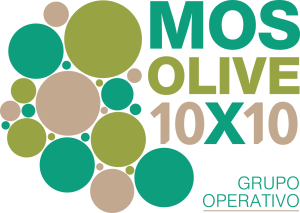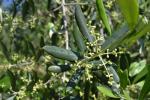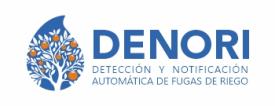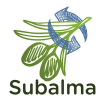
MOSOLIVE 10x10 Operational Group: Factors determining mineral oil contamination in traditional olive groves
- Type Operational group
- Status In progress
- Execution 2024 -2025
- Assigned Budget 299.986,31 €
- Scope Autonómico
- Autonomous community Andalucía
- Project website GO MOSOLIVE 10x10
Improvements in production processes will provide a competitive advantage over other competitors in specific markets with strict requirements for the presence of MOH in food products (e.g., Germany or France). Similarly, GMPs and materials/elements can promote the development of solutions for implementation in the sector, as well as collaborations with companies and scientific and university entities.
Thus, once the regulation on MOSH-MOAH levels is approved, the entire sector will be easily prepared to manage the new requirements. The development and implementation of Good Manufacturing Practices will strengthen the Quality and Food Safety position of olive oil producers and industries in regions where olive oil cultivation is predominantly traditional.
Finally, regarding the project's contribution to carbon neutrality, this impact will need to be assessed for each of the solutions, always considering that the improvements achieved will help ensure the continuation of traditional olive cultivation by providing it with the capacity to respond to the publication of regulations on MOSHMOAH.
Identification of the origin and degree of contamination during the different phases of the production chain of olive oils from traditional cultivation which, based on previous experiences, could be those containing higher levels of MOSH-MOAH due to the variety of harvesting techniques and circumstances, together with the age of the extraction facilities.
To innovate the production process for obtaining olive oils with low levels of MOSH-MOAH from traditional olive groves, whose harvesting method differs from other types of olive groves. To this end, we will use ICT tools to detect, record, and/or identify in real time any incidents that may cause the presence of MOSH-MOAH levels that are external and not determined by the fruit itself.
Improvements in production processes will provide a competitive advantage over other competitors in specific markets with strict requirements for the presence of MOH in food products (e.g., Germany or France).
Along the same lines, GMPs and materials/elements can promote the development of solutions for implementation in the sector, as well as collaborations with businesses and scientific and university entities. Thus, once the regulation on MOSH-MOAH levels is approved, the entire sector will be easily prepared to manage the new requirements.
The development and implementation of Good Manufacturing Practices will strengthen the Quality and Food Safety position of olive oil producers and industries in regions where olive oil cultivation is predominantly traditional.
Finally, regarding the project's contribution to carbon neutrality, this impact will need to be assessed for each of the solutions, always considering that the improvements achieved will help ensure the continuation of traditional olive cultivation by providing it with the capacity to respond to the publication of regulations on MOSHMOAH.
- Coordinator/entity name: CITOLIVA Foundation
- Postal address: Calle Sierra Morena, s/n. CTSA Building (ground floor) Geolit. Technology Park, 23620, Mengíbar, Jaén
- Coordinator/entity email: mdjimenez@citoliva.es
- Telephone: 953221130
- Fundación CITOLIVA
- Fundación CITOLIVA







